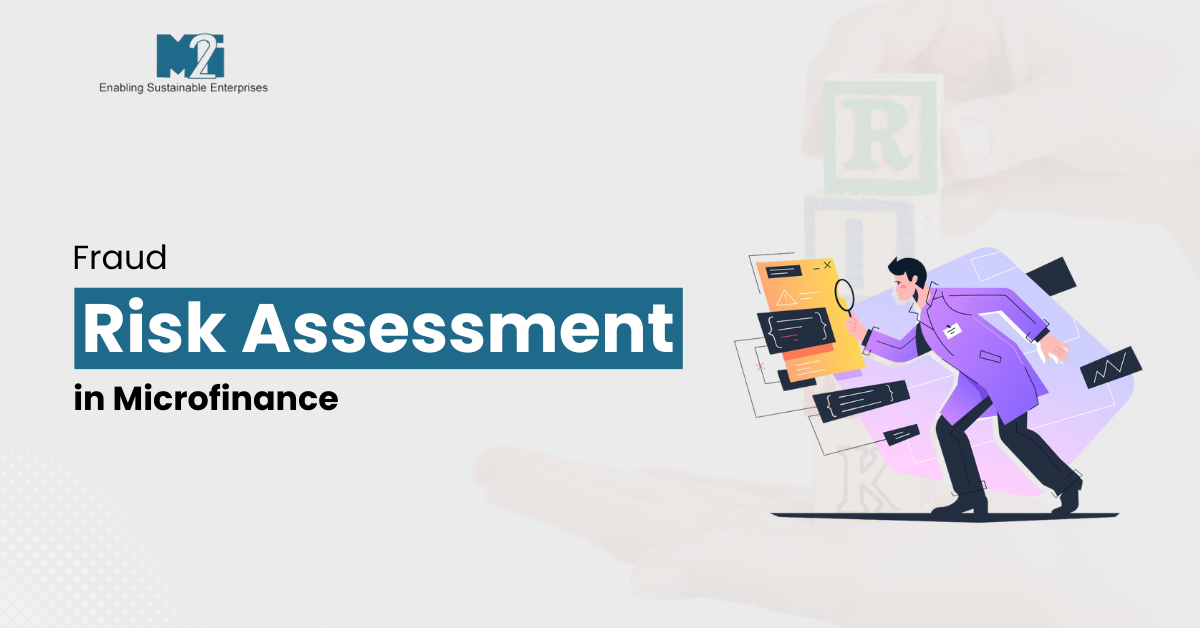
Fraud Risk Assessment in Microfinance
Fraud Risk Assessment in Microfinance
In the dynamic realm of microfinance, where institutions extend financial services to the underprivileged, the fight against fraud is an ongoing battle. As M2i Consulting, we understand the importance of safeguarding the integrity of microfinance operations. In this blog, we will delve into the intricate landscape of fraud risk assessment in microfinance and share valuable insights on how to fortify your institution against financial malfeasance.
The Microfinance Context
Microfinance institutions (MFIs) serve as beacons of hope for individuals and small businesses in economically marginalized regions. Yet, their noble mission often faces formidable challenges, one of which is the pervasive threat of fraud. To address this, we need a comprehensive understanding of the microfinance landscape.
Types of Fraud in Microfinance
-
Loan Diversion: Borrowers may divert funds for unintended purposes, impacting both the MFI and the borrower adversely.
-
Ghost Borrowers: Fictitious borrowers or those who employ fraudulent identities can exploit MFIs' operations.
-
Over-Indebtedness: Borrowers taking loans from multiple MFIs concurrently can lead to repayment complications.
-
Loan Recycling: Borrowers utilizing new loans to repay old ones, trapping themselves in a perpetual cycle of debt.
-
Embezzlement: Internal employees misappropriating funds or resources for personal gain.
Crafting a Resilient Fraud Risk Assessment Framework
To combat fraud effectively, MFIs must construct a robust fraud risk assessment framework tailored to their unique operational contexts.
Key Strategies
-
Data Analytics: Leverage data analytics to uncover unusual patterns in loan applications and repayments.
-
Credit Scoring Models: Employ advanced credit scoring models to evaluate borrower creditworthiness and detect potential risks.
-
Know Your Customer (KYC): Rigorously verify borrower identities to mitigate the risk of ghost borrowers.
-
Digitalization: Embrace technological solutions for efficient loan disbursement, repayment tracking, and fraud detection.
-
Training and Awareness: Foster a culture of vigilance by educating both staff and clients about fraud risks and prevention techniques.
Mitigating Risk: Strategies for Success
Effectively mitigating fraud risks in microfinance requires a multifaceted approach.
Proactive Measures
-
Diversified Loan Portfolio: Reduce risk by diversifying your loan offerings and target demographics.
-
Regular Audits: Conduct comprehensive internal and external audits to uncover vulnerabilities and early warning signs of fraud.
-
Robust Reporting Mechanisms: Establish clear channels for reporting suspicious activities while providing whistleblower protection.
-
Collaboration: Forge alliances with local authorities and fellow MFIs to share intelligence on emerging fraud schemes.
Continuous Vigilance
Fraud risk assessment in microfinance is not a one-time endeavor; it's a perpetual commitment. Regularly monitor operations, adapt strategies to evolving threats, and stay attuned to emerging fraud schemes.
Conclusion
In the microfinance sector, where the aspirations of the underprivileged converge with financial inclusion, the battle against fraud is paramount. As M2i Consulting, we believe that by understanding the intricacies of the microfinance landscape, implementing robust risk assessment frameworks, and fostering a vigilant culture, MFIs can safeguard their missions, ensuring that those in need continue to receive the support they deserve. In this ever-evolving environment, the key to success lies in staying one step ahead of fraud.